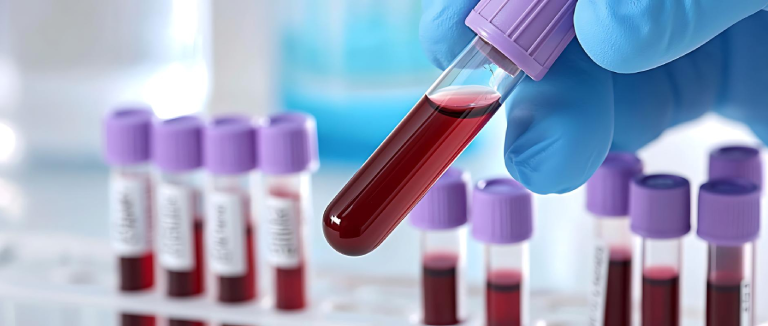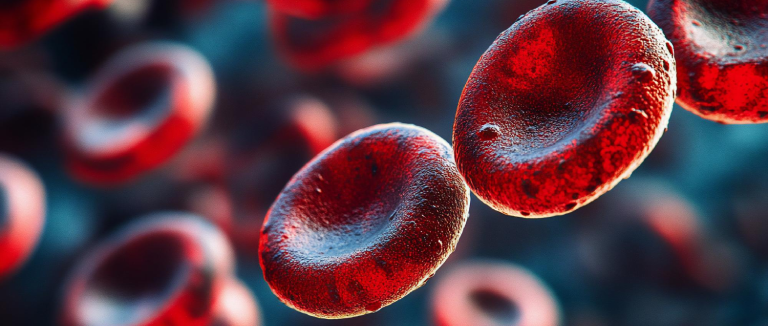Pediatric Hematology: Coordinated Care for Kids
Blood disorders and cancers present significant challenges in pediatric healthcare, requiring specialized expertise and coordinated care. This field involves not only the diagnosis and treatment of a range of blood conditions but also closely intersects with pediatric oncology to address the unique complexities of childhood cancers. Because these illnesses are often intricate and sensitive, a comprehensive, multidisciplinary approach is essential bringing together pediatric hematology and oncology experts who work collaboratively. Recognizing and understanding this collaboration is key to effectively navigating the complex landscape of blood-related disorders and cancers in children.

Pediatric Hematology: Understanding Blood Disorders
Hematology pediatric application is a pivotal domain within pediatric medicine, focusing on unraveling the intricacies of blood disorders afflicting children. This field meticulously delves into conditions that disrupt young patients’ normal functioning of blood components. The importance of personalized care for children grappling with these blood disorders cannot be overstated.
Unlike adult cases, pediatric hematologic conditions present unique challenges due to a child’s body’s growing and developing nature. Precise diagnosis, treatment approaches, and considerations for the child’s growth and development are paramount. The treatments offered by pediatric hematologists are essential in addressing immediate symptoms and mitigating potential long-term impacts on a child’s health and quality of life.
Discover hope and healing at Liv Hospital in Turkey, where compassionate care meets cutting-edge treatments for pediatric hematology. Your child’s journey toward recovery starts here.
Common Blood Disorders in Children
A variety of blood disorders can have a profound impact on children’s health, each presenting with its own unique set of symptoms and challenges.
Anemia:
Anemia is a common blood disorder in children, marked by a deficiency of red blood cells or hemoglobin needed for oxygen transport. This condition often causes fatigue, paleness, and decreased stamina, leading to lower energy levels and impacting a child’s overall well-being.
Thalassemia:
Thalassemia is a genetic blood disorder that affects the production of hemoglobin, often leading to anemia. The severity of thalassemia can vary, with symptoms ranging from fatigue and weakness to delayed growth. In severe cases, it can cause organ damage, making ongoing management and lifelong care essential.
Hemophilia:
Hemophilia is an inherited disorder that impairs the blood’s ability to clot, leading to excessive bleeding even after minor injuries. Children with hemophilia are prone to spontaneous bleeding into muscles and joints, which can result in pain, swelling, and, if untreated, long-term joint damage.
Sickle Cell Disease:
A genetic condition causing abnormal hemoglobin, leading to rigid, sickle-shaped red blood cells. This deformation obstructs blood flow, causing pain episodes, anemia, increased risk of infections, and organ damage, impacting a child’s daily life and health management.
Take the first step toward brighter days for your child “ explore the advanced treatments and unwavering support awaiting them at Liv Hospital in Istanbul.

Pediatric Oncology: Understanding and Treating Childhood Cancers
Pediatric Oncology delves into the diagnosis and treatment of cancers affecting children, presenting a complex landscape of medical challenges. Common childhood cancers encompass leukemia, lymphoma, brain tumors, and sarcomas, each with its distinct characteristics and treatment approaches. Despite the challenges posed by the condition’s rarity, significant advancements in pediatric oncology have emerged to improve treatment outcomes and reduce adverse effects in young patients.
Pediatric hematology, oncology, and other disciplines intertwine as blood-related disorders often coexist or influence cancer development in children. Understanding the interconnectedness between these fields is vital; hematologists play a crucial role in diagnosing blood-related complications in pediatric cancer patients and managing their treatment, highlighting the indispensable nature of pediatric hematology in childhood cancer care.
At Liv Hospital, your child isn’t just a patient; they’re a part of our family. Experience personalized care and groundbreaking treatments crafted for their unique needs in Turkey.
Diagnostic Procedures in Pediatric Hematology and Oncology
Diagnostic procedures in pediatric hematology and oncology involve a variety of essential tools used to accurately identify blood disorders and cancers in children.
- Blood tests, including complete blood counts and specialized tests assessing blood clotting factors, are fundamental in diagnosing various hematologic conditions.
- Bone marrow examinations offer valuable insights into the composition and functionality of blood-forming tissues, aiding in pinpointing specific disorders.
- Genetic testing is pivotal in unraveling inherited conditions like thalassemia or identifying genetic mutations linked to certain cancers.
These diagnostic tools are vital for developing effective, individualized treatment plans. By accurately determining the type and severity of the condition, healthcare professionals can tailor treatment strategies to meet each child’s specific needs.

Treatment Modalities in Pediatric Hematology and Oncology
Treatment approaches in a pediatric hematology and oncology clinic encompass a variety of specialized therapies tailored to manage blood disorders and childhood tumors effectively..
Medications:
Medications play a critical role in treating pediatric blood disorders and cancers. For example, iron supplements are used to address anemia, while chemotherapy drugs target and control cancer. These pharmacological interventions help relieve symptoms, slow disease progression, and are often tailored to meet the specific needs of each child.
Transfusions:
Transfusions are essential for replacing depleted blood components in children with severe anemia or bleeding disorders. By supplying red blood cells, platelets, or plasma, transfusions help restore normal blood function and support overall health.
Bone Marrow Transplantation:
Bone marrow transplantation is a vital procedure for certain blood disorders and aggressive cancers. By replacing damaged or diseased bone marrow with healthy stem cells, this treatment restores the body’s ability to produce normal blood cells and is often essential for long-term recovery.
Radiation Therapy:
Radiation therapy is used in select cancer cases to precisely target and shrink tumors, helping to control or even eliminate the cancer.
Surgery:
Operative procedures play a crucial role in treatment efforts since they may be required to eliminate tumors or manage problems emerging from blood issues.
Join hands with a team devoted to your child’s well-being. Experience compassionate care combined with world-class expertise at Liv Hospital in Istanbul, dedicated to transforming lives.
Liv Hospital – Embraces Compassion And Expertise
Awareness, support, and ongoing research are the cornerstones of hope for young patients and their families in pediatric hematology. By staying informed and supporting initiatives in this field, we pave the way for better treatments, improved care, and brighter futures for children battling blood disorders and cancers. Liv Hospital stands as a beacon of excellence for those seeking specialized care for the most affordable prices in Turkey in 2023.
With a commitment to “Leading International Vision” Liv Hospital prioritizes international perfection in healthcare, offering cutting-edge treatments and a multidisciplinary approach to each patient’s needs. Reach out to Liv Hospital for comprehensive care, compassionate support, and the pursuit of healing possibilities that transcend borders. Together, let’s champion progress and hope in pediatric oncology and hematology.
* Liv Hospital Editorial Board has contributed to the publication of this content .
* Contents of this page is for informational purposes only. Please consult your doctor for diagnosis and treatment. The content of this page does not include information on medicinal health care at Liv Hospital .
For more information about our academic and training initiatives, visit Liv Hospital Academy
Frequently Asked Questions Pediatric Hematology
What is pediatric hematology?
Pediatric hematology is the medical specialty that diagnoses and treats blood-related conditions in infants, children, and adolescents. These conditions can include anemia, bleeding or clotting disorders, sickle cell disease, thalassemia, and platelet or white blood cell problems. Care often combines diagnostics (blood tests, genetic tests), medication management, transfusions, and long-term follow-up tailored to growing children.
What is pediatric hematology-oncology?
Pediatric hematology-oncology is a combined specialty focused on blood disorders and childhood cancers. On the hematology side, clinicians manage issues like anemia and bleeding disorders; on the oncology side, they treat cancers such as leukemia, lymphoma, brain tumors, and solid tumors of the body. Teams coordinate treatment plans that may include chemotherapy, targeted therapy, immunotherapy, transfusions, procedures, and supportive care.
What should I expect at a pediatric hematology appointment?
Expect a detailed medical history and symptom review, a physical exam, and usually blood tests. Depending on your child’s condition, the visit may also include imaging (such as an ultrasound), a review of prior results, and a personalized care plan. The care team explains next steps, potential side effects of treatments, how to monitor symptoms at home, and when to seek urgent care.
What kinds of symptoms might lead to a pediatric hematology referral?
Common reasons include persistent fatigue, pallor (pale skin), frequent or unusual bruising, nosebleeds, prolonged bleeding from cuts, recurrent infections, bone or joint pain, enlarged lymph nodes, or unexplained fevers and weight loss. Not all symptoms indicate a serious condition, but they warrant evaluation to rule out blood disorders or malignancy.
How are childhood blood disorders and cancers diagnosed?
Diagnosis typically begins with blood counts and specialized laboratory tests (e.g., iron studies, coagulation tests, hemoglobin electrophoresis). If cancer is suspected, additional tests may include bone marrow examination, imaging (X-ray, ultrasound, CT/MRI), and molecular or genetic testing to precisely classify the disease and guide treatment choices.
What treatments are commonly used in pediatric hematology-oncology?
Treatment depends on the condition. Options include iron or vitamin therapy for certain anemias, medications to prevent bleeding or clotting, transfusions, chelation therapy for iron overload, and disease-modifying drugs for sickle cell disease. For cancers, care often involves chemotherapy, targeted or immunotherapy, and sometimes surgery or radiation. Supportive care, such as infection prevention, nutrition, and psychosocial support, is integral.
How is care coordinated for children and families?
Care is delivered by a multidisciplinary team that may include pediatric hematology-oncology physicians, nurses, pharmacists, social workers, nutritionists, child-life specialists, and psychologists. This team approach ensures medical treatment, symptom control, emotional support, and practical guidance (e.g., managing medications at home, scheduling tests, communicating results) are all addressed in a family-centered way.











